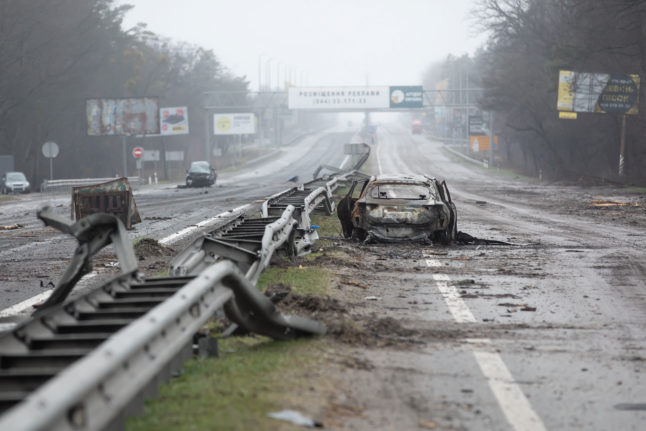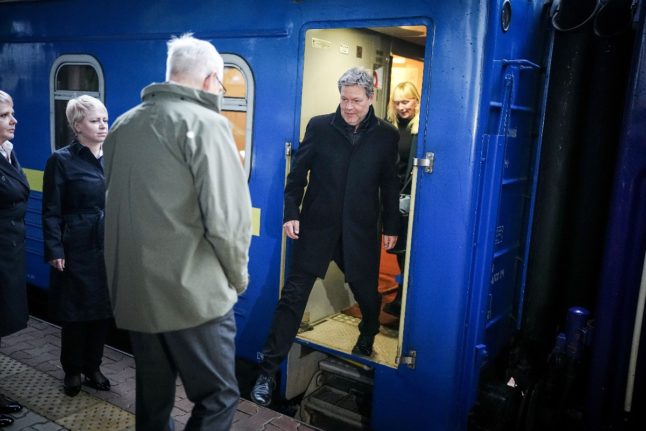Some of the audio material collected appears to relate to victims found dead along a main street in Bucha, the magazine said, citing a closed-door parliamentary briefing given by Germany’s foreign intelligence service BND.
Among the intercepts was a soldier’s description of how he and his platoon mates shot a person on a bicycle.
AFP journalists on the ground in Bucha saw three bodies tangled up in bicycles among the 20 corpses found along the tree-lined street, after Russian troops withdrew.
The Kremlin has however denied the accusations of mass killings, claiming instead that the images emerging from Bucha were “fakes” or that the deaths occurred after Russian soldiers pulled out.
READ ALSO: German gas embargo could help end Ukraine war, says expert
Spiegel said the audio files intercepted by the BND also provide evidence of the Wagner mercenary group’s role in the atrocities.
The killings were also apparently not random acts.
Rather, the soldiers were discussing the killings “as though they were simply discussing their everyday lives,” said the magazine.
The German government had said on Wednesday that satellite images from last month provided strong counterevidence against Russia’s denials of the atrocities.
Images at Berlin’s disposal covered the period from March 10-18th and “led to the conclusion that the victims whose images we all saw were lying there since at least March 10th”, said government spokesman Steffen Hebestreit.
“Reliable evidence shows that Russian fighting and security forces were deployed in this area from March 7th until the 30th,” he said.
When asked if the satellite images viewed by German officials were from allies or media sources, Hebestreit replied: “These are our findings but as you know we do not comment on the origin or evaluation of intelligence matters”.
The Group of Seven industrialised nations on Thursday called for Russia to be suspended from the UN’s human rights body over “heinous acts and atrocities” in Ukraine.



 Please whitelist us to continue reading.
Please whitelist us to continue reading.
Member comments